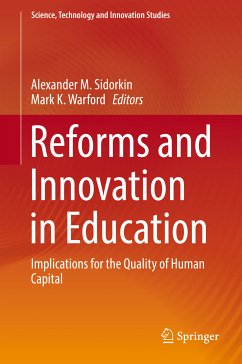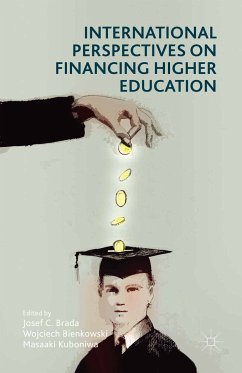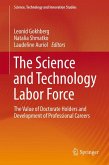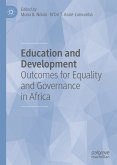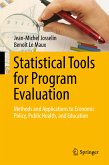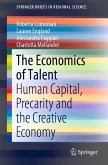This book investigates the interrelationship between educational reforms and pedagogical and technological innovations, as well as the implications of this relationship for the quality of human capital. By analyzing recent educational reforms in Russia and the US, the authors shed new light on how these reforms may help or hinder innovations, such as the introduction of computer technologies into classrooms, new methods of teacher evaluation, constructivist teaching methods, and governance in public schools.
Taking labor economics as a useful lens for conceptualizing the diffusion of innovation, in the first part of the book the authors analyze book how certain power arrangements can block educational innovations in schools. In the second part they examine recent educational reforms in the US and Russia. The final part presents a vision of the next generation of educational reforms, which may enable innovation diffusion, rather than hamper it.
Taking labor economics as a useful lens for conceptualizing the diffusion of innovation, in the first part of the book the authors analyze book how certain power arrangements can block educational innovations in schools. In the second part they examine recent educational reforms in the US and Russia. The final part presents a vision of the next generation of educational reforms, which may enable innovation diffusion, rather than hamper it.
Dieser Download kann aus rechtlichen Gründen nur mit Rechnungsadresse in A, B, BG, CY, CZ, D, DK, EW, E, FIN, F, GR, HR, H, IRL, I, LT, L, LR, M, NL, PL, P, R, S, SLO, SK ausgeliefert werden.

